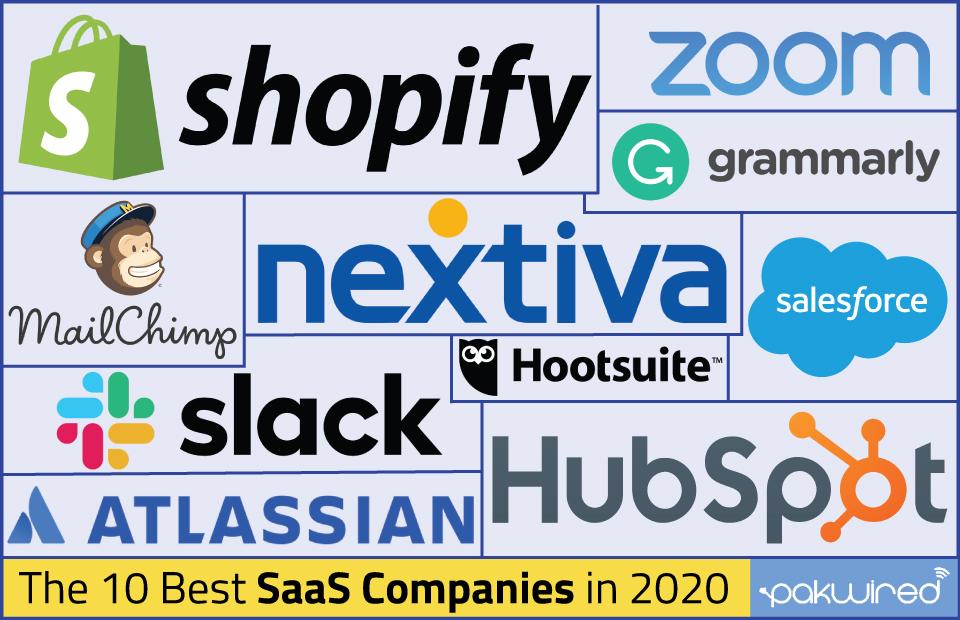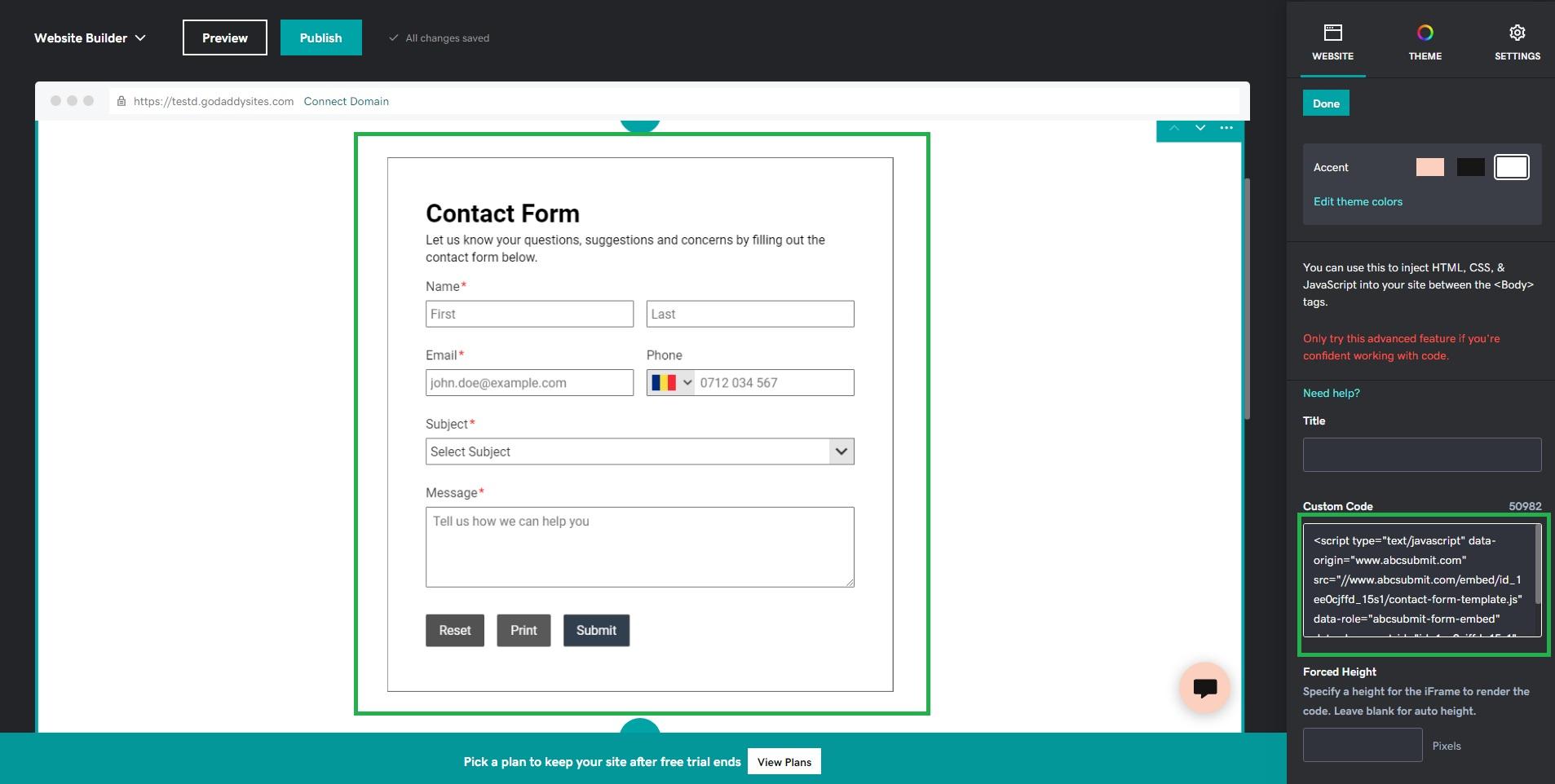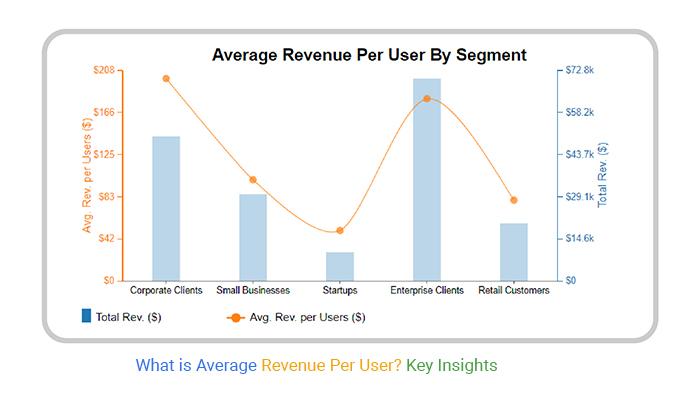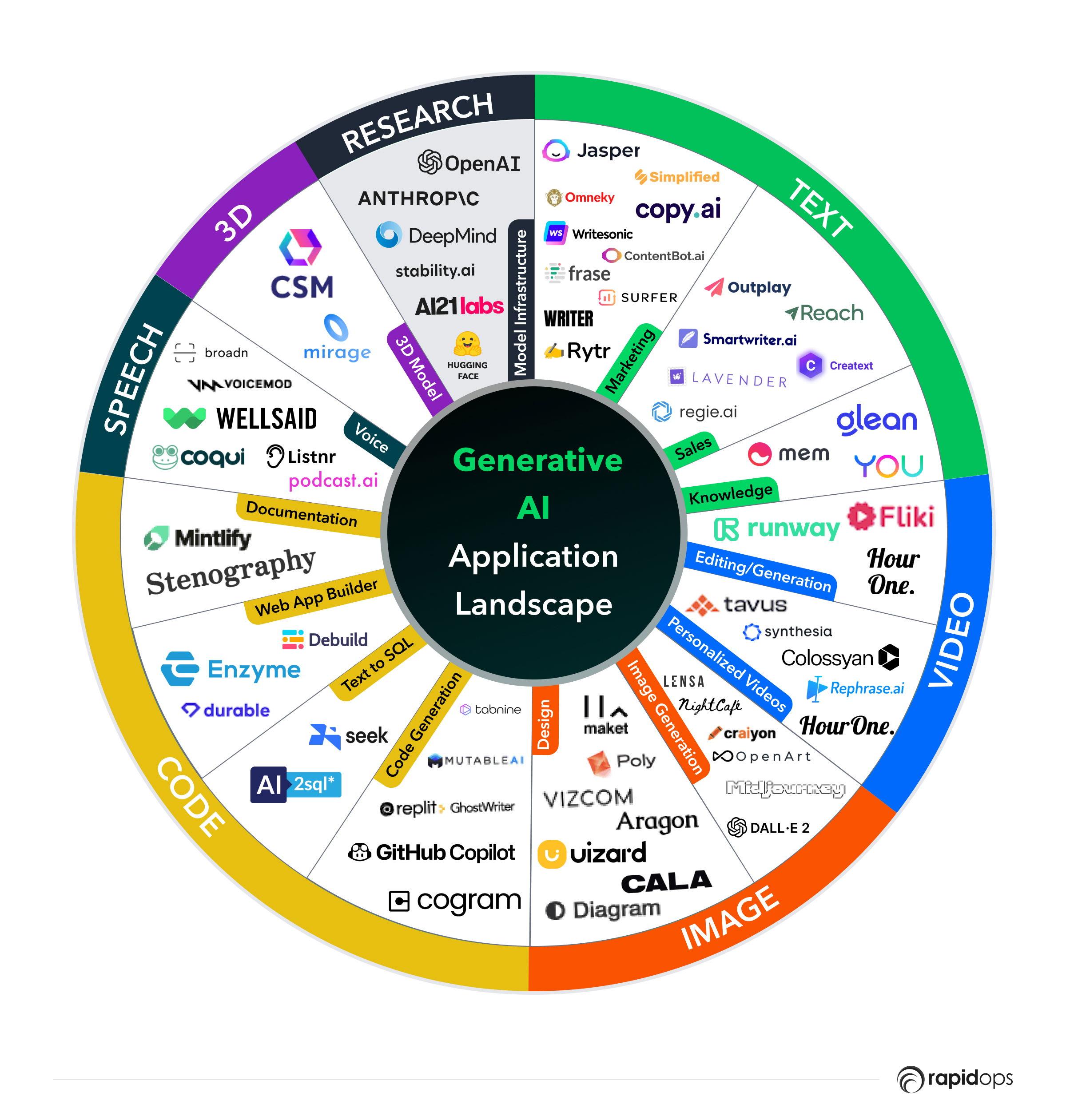
In the fast-paced world of sales and customer relationship management (CRM), staying ahead of the competition is more crucial than ever. As we look towards 2025, one thing is clear: artificial intelligence is no longer just a futuristic concept—it’s a game changer that’s reshaping how businesses connect with their customers. Imagine having tools at your fingertips that not only streamline your processes but also enhance your understanding of customer behavior, enabling you to tailor your approach like never before.
In this article, we’re diving into the 9 Best AI Tools for CRM in 2025 that can help you scale your operations and supercharge your sales. Whether you’re a small startup or an established enterprise, these cutting-edge solutions are designed to take your customer interactions to the next level. Get ready to discover how integrating AI into your CRM strategy can unlock unprecedented growth opportunities and set you on the path to success. Let’s explore these innovative tools that are poised to transform your sales game!
Embracing the Future of CRM with AI Technology
As we step into 2025, the landscape of customer relationship management (CRM) is undergoing a revolutionary transformation powered by artificial intelligence (AI). Businesses are no longer just looking for tools to manage customer interactions; they are seeking intelligent systems that can analyze data, predict customer behavior, and enhance overall experience. This shift is not just an upgrade; it’s a complete reimagining of how we connect with our clients.
Imagine a CRM that doesn’t just store data but actively learns from it. AI-driven CRM tools can analyze customer patterns and preferences, providing businesses with invaluable insights that traditional systems simply can’t match. By leveraging machine learning algorithms, these tools can segment your audience more effectively, ensuring that your marketing efforts are targeted and personalized.
One of the standout features of AI-powered CRM tools is their ability to automate routine tasks. From scheduling meetings to following up on leads, AI can handle time-consuming activities, allowing your sales team to focus on what truly matters: building relationships and closing deals. With automation, you can improve productivity and ensure that no opportunity slips through the cracks.
The integration of AI also enhances customer service. Chatbots and virtual assistants can provide instant responses to customer inquiries, offering 24/7 support without the need for human intervention. This not only improves customer satisfaction but also frees up your support team to handle more complex issues. As a result, your business can maintain a competitive edge by providing timely and efficient service.
Additionally, predictive analytics is set to redefine how businesses approach sales forecasting. By analyzing historical data and current trends, AI tools can predict future sales and customer behavior with remarkable accuracy. This insight allows businesses to make informed decisions, allocate resources more effectively, and ultimately drive revenue growth.
As we embrace these advancements, it’s crucial to choose the right AI tools for your CRM needs. Here are some key features to look for:
- Data Integration: Seamless integration with existing systems to ensure a unified approach to customer management.
- User-Friendly Interface: An intuitive design that makes it easy for teams to adopt and utilize the technology.
- Scalability: The ability to grow with your business, adapting to increasing demands as your customer base expands.
- Customization: Tailored solutions that cater to the unique needs of your industry and customer base.
the future of CRM is bright, and AI technology is at the helm of this exciting evolution. By adopting AI-driven tools, businesses can optimize their sales processes, enhance customer relationships, and ultimately drive growth. As we look ahead, those who embrace this technology will not only keep pace with the competition but will also set the standard for customer engagement.
Why AI is a Game Changer for Sales Teams
In today’s fast-paced business environment, sales teams are constantly seeking innovative ways to streamline processes and enhance productivity. One of the most significant technological advancements driving this transformation is artificial intelligence. By integrating AI into their workflows, sales teams can unlock a plethora of benefits that not only improve efficiency but also significantly boost sales performance.
First and foremost, AI empowers sales teams with data-driven insights. By analyzing massive datasets, AI tools can identify trends and patterns that may not be apparent to human analysts. This capability allows sales professionals to make informed decisions about which leads to pursue and when to engage them, maximizing their chances of closing deals. With real-time analytics, teams can continuously adapt their strategies based on the latest market insights.
Another remarkable advantage of AI is its ability to automate repetitive tasks. Tasks such as data entry, lead scoring, and follow-up emails can consume a considerable amount of time for sales representatives. By automating these processes, AI frees up valuable hours that sales teams can redirect towards building relationships and nurturing leads. This not only increases productivity but also enhances the overall sales experience for clients.
Furthermore, AI-powered CRM tools can facilitate personalized communication. By analyzing customer data, these tools can generate tailored messages that resonate with individual prospects. Personalization increases engagement and builds trust, making potential clients more inclined to respond positively. Whether through chatbots or automated email campaigns, AI ensures that communication remains relevant and timely.
Additionally, AI can significantly improve lead generation efforts. Advanced algorithms can sift through vast amounts of data to identify potential leads that match specific criteria. This means that sales teams can focus their efforts on high-quality leads that are more likely to convert, rather than wasting time on less promising prospects. AI-driven tools can even help in scoring leads based on their likelihood to purchase, optimizing resource allocation.
Moreover, AI enhances collaboration within sales teams. With tools designed to streamline communication and project management, teams can share insights and strategies more effectively. This interconnectedness fosters a culture of collaboration, where knowledge is shared, and best practices are adopted across the board. The result? A more cohesive and high-performing sales team that thrives on synergy.
To illustrate the impact of AI on sales, consider the following table showcasing the benefits of AI tools implemented in sales strategies:
| Benefit | Description |
|---|---|
| Increased Efficiency | Automating repetitive tasks allows more time for engaging with leads. |
| Data Insights | Real-time analytics provide actionable insights for decision-making. |
| Personalization | Customized communication enhances customer engagement and trust. |
| Lead Generation | Identifying high-quality leads improves conversion rates. |
| Collaboration | Improved communication boosts teamwork and knowledge sharing. |
the integration of AI into sales processes is not just a trend; it’s a transformation that can redefine how sales teams operate. With insights, automation, personalization, and enhanced collaboration at their disposal, sales professionals can outperform their goals and drive revenue growth like never before. Embracing AI is no longer optional; it’s a necessity for staying competitive in the ever-evolving sales landscape.
Top Features to Look for in AI CRM Tools
When exploring AI CRM tools, it’s essential to identify specific features that can truly transform your sales process and customer interactions. Here are some standout capabilities to consider:
- Predictive Analytics: Look for tools that use AI to analyze customer data and predict future behavior. This feature can help you identify leads that are more likely to convert, enabling your sales team to focus their efforts where they matter most.
- Automated Workflows: The ability to automate routine tasks, such as follow-up emails or reporting, can save time and improve efficiency. An AI-driven CRM can streamline these processes, allowing your team to concentrate on high-impact activities.
- Natural Language Processing (NLP): A CRM that uses NLP can analyze customer communications, providing valuable insights into sentiment and intent. This understanding can help tailor your sales approach and improve customer relationships.
- Integration Capabilities: Ensure the CRM can seamlessly integrate with other tools you already use, such as marketing automation platforms or social media channels. This capability ensures a unified approach to customer engagement and data management.
- Real-Time Reporting and Dashboards: Access to real-time data is crucial for informed decision-making. Look for CRMs that provide customizable dashboards and reports to track KPIs and sales performance at a glance.
- AI-Powered Chatbots: Implementing chatbots can enhance customer support and engagement. Choose a CRM that offers AI-driven chatbots to handle inquiries and provide instant assistance, freeing up your team’s time.
| Feature | Benefit |
|---|---|
| Predictive Analytics | Identify high-potential leads |
| Automated Workflows | Increase efficiency and free up time |
| NLP | Gain insights into customer sentiment |
| Integration | Seamless data management across platforms |
| Real-Time Reporting | Make informed, timely decisions |
| AI Chatbots | Enhance customer support |
Investing in the right AI CRM tool is not just about features; it’s about how those features will enhance your organization’s overall customer relationship strategy. A robust AI CRM can help you understand your customers better, personalize your sales approach, and ultimately drive higher conversions.
As you evaluate your options, keep these features in mind. They can be the difference between a standard CRM and one that genuinely revolutionizes your sales efforts. Make sure to choose a tool that aligns with your business objectives and has the scalability to grow with your needs.

Boosting Customer Engagement with AI Insights
Enhancing Customer Relationships through AI
Understanding customer behavior is at the core of successful sales strategies, and with the advent of AI, businesses can now gain invaluable insights into their customers’ preferences and buying patterns. By leveraging AI tools, companies can transform how they interact with their customers, resulting in enhanced engagement and ultimately, increased sales.
Imagine having the ability to predict customer needs before they even vocalize them. AI tools can analyze data from previous interactions, social media behaviors, and purchase histories to deliver personalized experiences. With insights driven by AI, businesses can:
- Segment Customers: Identify distinct customer segments based on behavior and preferences, allowing for targeted marketing strategies.
- Personalize Communication: Tailor messages and offers to resonate with individual customers, enhancing their connection to your brand.
- Anticipate Needs: Use predictive analytics to foresee what products or services a customer may require next.
Moreover, AI can facilitate real-time engagement through chatbots and virtual assistants, providing immediate responses to customer inquiries. This not only enhances the customer experience but also frees up your sales team to focus on closing deals rather than managing inquiries. The result? A more streamlined operation with happier customers.
Empowered Sales Teams
By integrating AI insights into your CRM, sales teams are empowered with data-driven decision-making capabilities. This can significantly reduce the sales cycle and improve conversion rates. Consider the following benefits:
| AI Tool Benefits | Impact on Sales |
|---|---|
| Predictive Analytics | Shortens sales cycles and increases closing rates. |
| Automated Follow-Ups | Ensures no leads are left unattended. |
| Sentiment Analysis | Provides insights into customer feelings towards your brand. |
With AI-driven insights, sales teams can prioritize leads that are most likely to convert, enabling them to allocate resources more effectively. This not only maximizes efficiency but also fosters a more proactive approach to customer engagement.
As we move further into 2025, the integration of AI tools within CRM systems is not just a trend; it’s becoming essential for companies that wish to stay competitive. By harnessing the power of AI, businesses can create a customer-centric approach that not only meets but exceeds customer expectations. This commitment to understanding and engaging customers on a deeper level will ultimately drive sales and foster long-term loyalty.
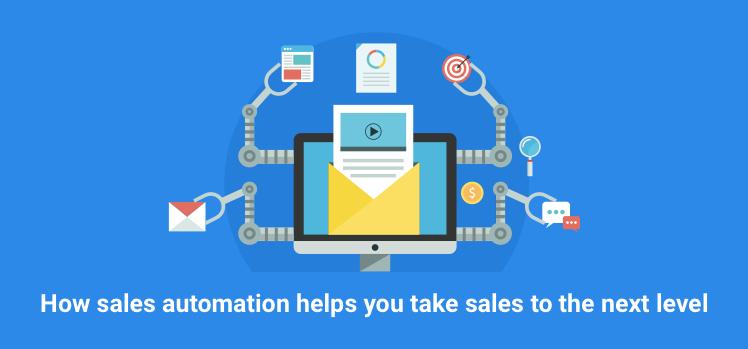
Streamlining Sales Processes Through Automation
In today’s fast-paced business landscape, the integration of automation into sales processes has become essential for companies looking to enhance efficiency and drive growth. By leveraging AI tools designed for CRM, organizations can streamline their workflows, reduce manual tasks, and ultimately focus on what truly matters: closing deals and nurturing customer relationships.
With the advent of advanced AI technologies, sales teams can now automate a variety of functions including:
- Lead Scoring: Quickly identify high-potential leads based on behavior and engagement.
- Follow-Up Emails: Schedule personalized follow-ups to ensure no lead falls through the cracks.
- Data Entry: Reduce time spent on manual data input by capturing information automatically.
- Performance Analytics: Generate insights on sales performance and customer interactions in real-time.
One of the key advantages of incorporating these tools is their ability to enhance customer engagement. By automating routine tasks, sales representatives can devote more time to personalizing communications and building lasting relationships with clients. This shift not only increases customer satisfaction but also boosts loyalty, which is crucial for long-term success.
Moreover, automation can significantly improve the accuracy of data. Traditional methods often lead to human errors that can skew results and hinder decision-making. With AI-driven CRM systems, data is collected and analyzed in a consistent manner, providing sales teams with reliable insights that inform strategies and forecasting.
| Tool | Key Feature | Benefit |
|---|---|---|
| Tool A | Automated Lead Scoring | Identifies high-value prospects quickly. |
| Tool B | Personalized Email Sequences | Enhances customer engagement. |
| Tool C | Real-Time Analytics | Informs strategic decision making. |
Implementing these AI CRM tools not only optimizes internal sales processes but also aligns with broader business objectives. As organizations become more data-driven, the ability to pivot and adapt based on real-time insights becomes a competitive advantage. Companies utilizing automation can respond to market changes faster, allowing them to seize opportunities others might miss.
As we look towards 2025, the landscape of sales automation will continue to evolve, offering even more sophisticated tools that cater to the unique needs of diverse industries. Embracing these technologies now prepares businesses for future challenges and positions them as leaders in their respective markets.
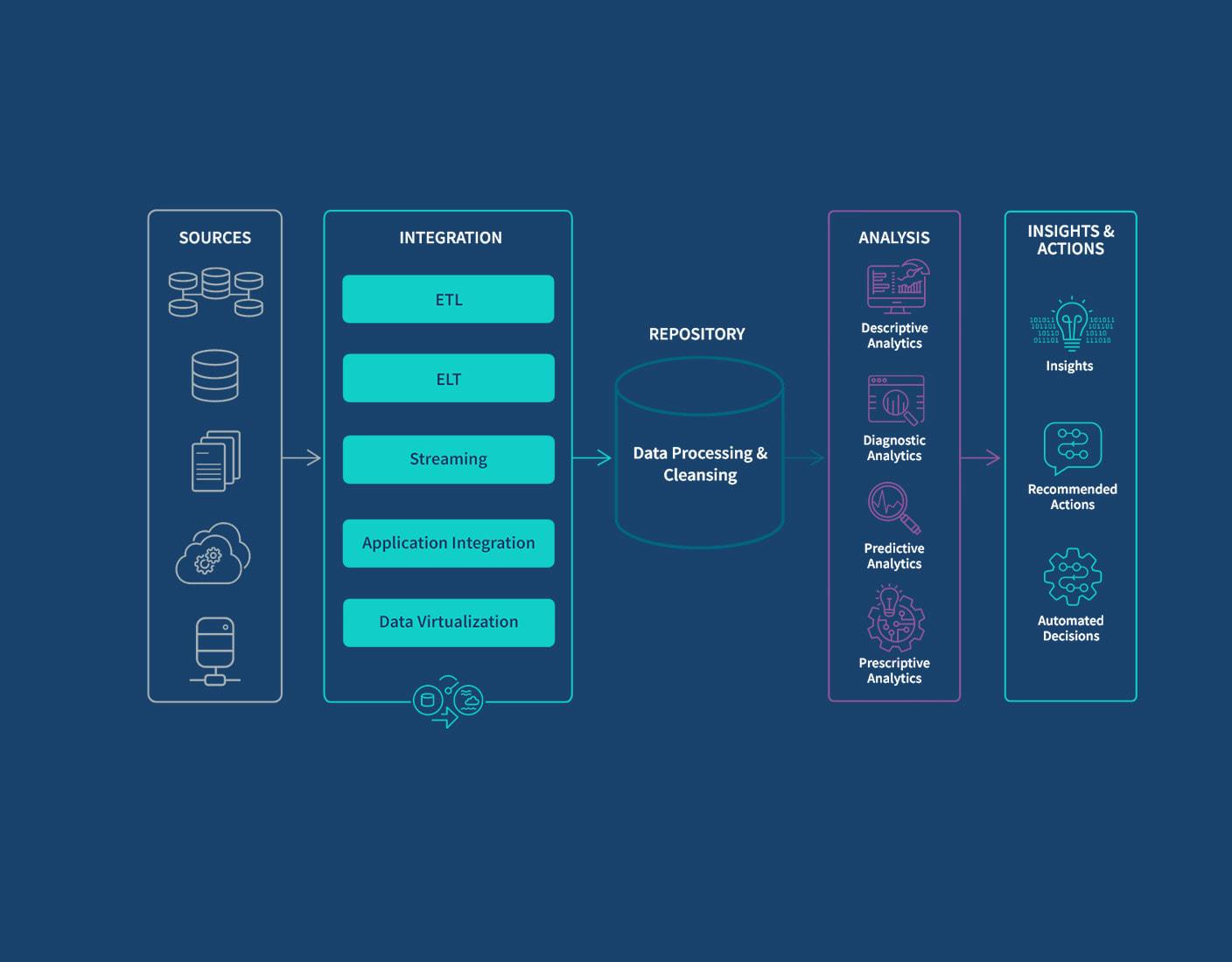
Enhancing Data Analysis for Better Decision Making
In the competitive landscape of customer relationship management (CRM), leveraging advanced AI tools can significantly streamline data analysis, leading to more informed and effective decision-making. By harnessing the power of AI, organizations can transform raw data into actionable insights, ensuring that every business decision is backed by solid evidence.
One of the primary advantages of AI-driven CRM tools is their ability to automate data collection. Instead of sifting through endless spreadsheets and databases, teams can rely on AI to gather and organize customer information from various sources. This not only saves time but also minimizes human error, resulting in more accurate data that can be relied upon for strategic planning.
Furthermore, AI tools can analyze customer behavior patterns and preferences, providing businesses with a clear understanding of their target audience. This capability allows organizations to tailor their marketing strategies and sales approaches effectively. For instance, AI can segment customers based on their purchasing habits, enabling personalized outreach that resonates with individual preferences.
Consider the following benefits of integrating AI tools into your CRM:
- Predictive Analytics: Anticipate customer needs and trends based on historical data.
- Enhanced Customer Insights: Gain a comprehensive view of customer interactions and feedback.
- Real-time Reporting: Access up-to-date information to make quick, informed decisions.
- Improved Collaboration: Facilitate better communication between sales and marketing teams through shared data.
Moreover, AI tools often come equipped with machine learning algorithms that continuously improve their performance. As more data is fed into the system, these algorithms refine their predictions and analyses, making your CRM increasingly sophisticated over time. This adaptability ensures that your business remains competitive in an ever-evolving market.
When selecting the right AI tool for your CRM needs, consider the following factors:
| Feature | Importance |
|---|---|
| Integration Capabilities | Seamless connection with existing systems. |
| User-Friendly Interface | Ensures team adoption and ease of use. |
| Scalability | Ability to grow with your business. |
| Support and Training | Access to resources for optimal tool utilization. |
By implementing the right AI tools, businesses not only enhance their data analysis capabilities but also empower their teams to make strategic decisions that drive growth. The future of CRM is increasingly reliant on these technologies, and companies that adapt early will undoubtedly benefit from increased efficiency and profitability.
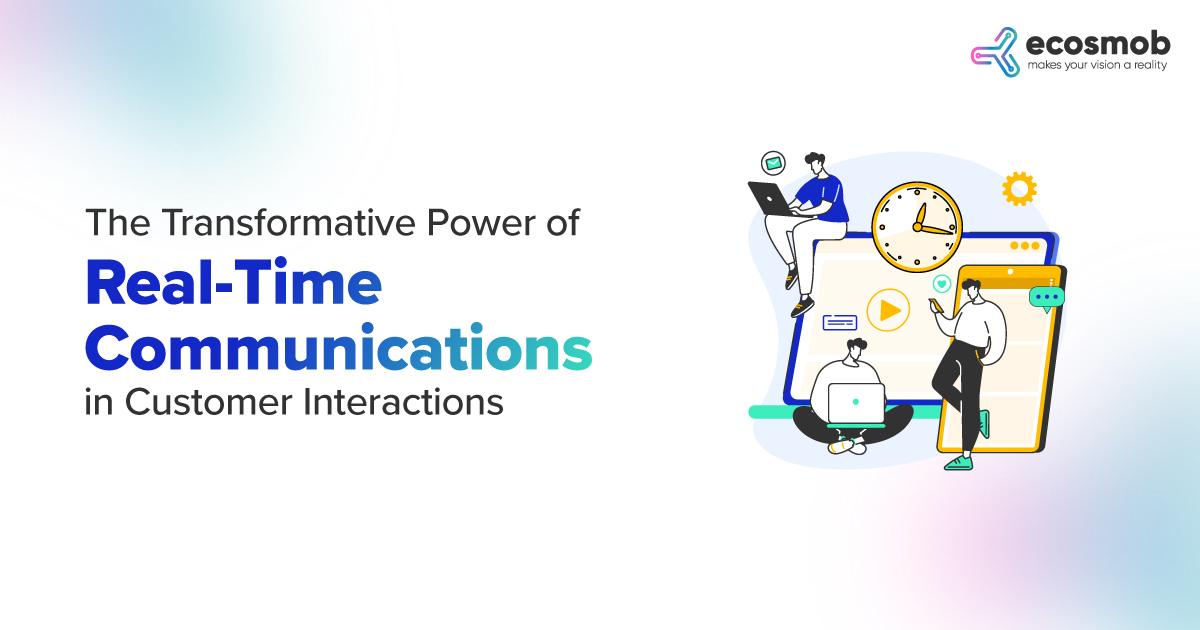
Real-Time Customer Interaction: The AI Advantage
In today’s fast-paced digital world, the ability to interact with customers in real-time is a game changer. With the integration of AI tools in Customer Relationship Management (CRM) systems, businesses can enhance their customer engagement strategies like never before. Imagine being able to anticipate customer needs before they even reach out—this is where AI steps in.
AI-driven CRM systems leverage advanced algorithms to analyze customer data and behavior, enabling businesses to deliver personalized experiences. This means that your sales team can respond to inquiries immediately, armed with insights about the customer’s previous interactions and preferences. The result? Increased satisfaction and loyalty.
Here are some key advantages that AI brings to real-time customer interaction:
- 24/7 Availability: With AI chatbots, customers receive instant responses any time of day, ensuring they feel valued and heard.
- Data-Driven Insights: AI tools analyze vast amounts of data, helping businesses understand trends and predict future customer behavior.
- Personalized Engagement: Tailored messages and recommendations make customers feel special, driving engagement and conversions.
Furthermore, AI tools can automate routine tasks, freeing up your sales team to focus on more complex interactions and strategies that require human touch. This not only boosts productivity but also enhances the overall customer experience. For instance, a CRM system with AI capabilities can automatically prioritize leads based on their likelihood to convert, ensuring that your team spends their time wisely.
To illustrate the impact of AI tools in CRM, consider the following comparison of traditional vs. AI-powered customer interaction:
| Aspect | Traditional CRM | AI-Powered CRM |
|---|---|---|
| Response Time | Often delayed, manual responses | Instant, automated responses |
| Data Analysis | Manual and time-consuming | Real-time, predictive insights |
| Customer Engagement | Generic and one-size-fits-all | Personalized and targeted |
The shift towards AI in CRM is not just a trend; it’s a necessary evolution in how businesses operate. Companies that embrace these tools can scale their operations efficiently while fostering a deeper connection with their customers. As the landscape continues to evolve, those who invest in AI technologies will find themselves at a distinct advantage in the competitive marketplace.
Ultimately, the future of customer interaction lies in harnessing the power of AI to create seamless, engaging, and meaningful experiences. As we move into 2025, it’s clear that the businesses willing to adapt and innovate will not only survive but thrive.
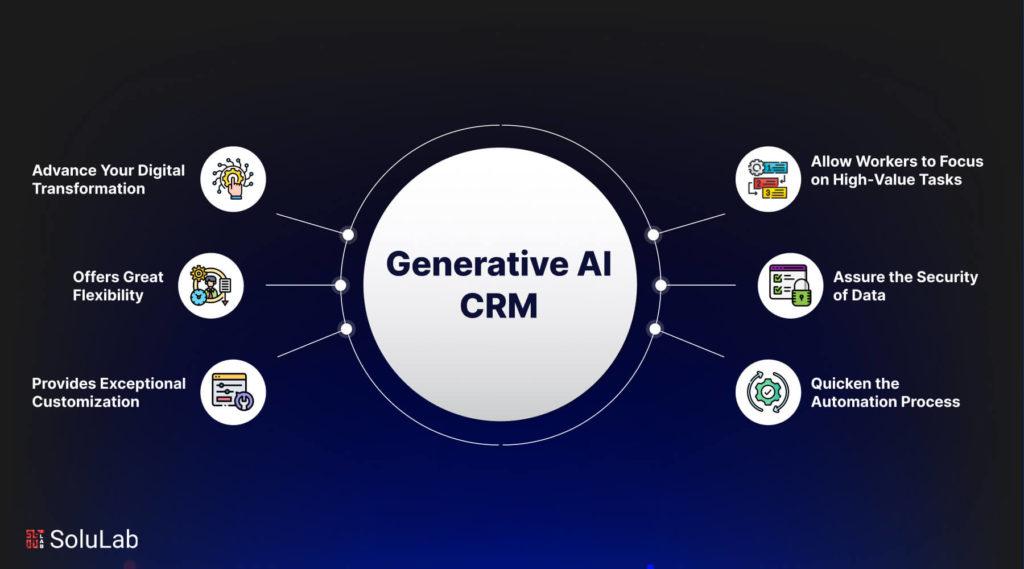
Integrating AI CRM Tools with Existing Systems
Integrating AI CRM tools into your existing systems can seem daunting, but the benefits far outweigh the challenges. When implemented correctly, these tools can revolutionize how you interact with customers, streamline your sales processes, and ultimately drive revenue growth. Here’s how to make the integration as seamless as possible.
First and foremost, it’s essential to choose AI CRM tools that are compatible with your current technology stack. Look for solutions that offer robust API support and can easily connect with your existing software platforms. This ensures data can flow freely between systems, reducing the chance of silos that can hinder operational efficiency.
Next, consider the following strategies for successful integration:
- Conduct a Needs Assessment: Before integrating any new AI tool, assess your organization’s specific needs. Identify gaps in your current CRM processes and define what you aim to achieve with the integration.
- Focus on User Experience: Ensure that the new AI CRM tools are user-friendly. If employees find the tools cumbersome, they may resist using them, negating the potential benefits.
- Data Migration: Develop a clear plan for migrating your existing customer data into the new system. Clean and organize your data to avoid complications during this process.
- Training and Support: Invest in training sessions for your team. Providing ongoing support will help them adapt to the new system and utilize its features effectively.
Moreover, consider implementing a phased approach to integration. This means rolling out the AI CRM tools gradually rather than all at once. A phased approach allows your team to adjust incrementally, reducing resistance and giving you time to address any issues that arise.
Testing is another critical component. Conduct thorough testing of the integrated systems to ensure everything works as intended. This includes checking data accuracy, system performance, and user interface functionality. Gathering feedback from users during this phase can provide valuable insights that can help refine the integration.
keep an eye on analytics and performance metrics post-integration. By measuring key performance indicators (KPIs), you can assess the effectiveness of the AI CRM tools and make necessary adjustments. Look for improvements in customer engagement, sales conversions, and overall productivity.
By thoughtfully integrating AI CRM tools with your existing systems, you position your business for success. Embrace the technology, invest in your team, and watch as these tools transform your customer relationships and sales processes.
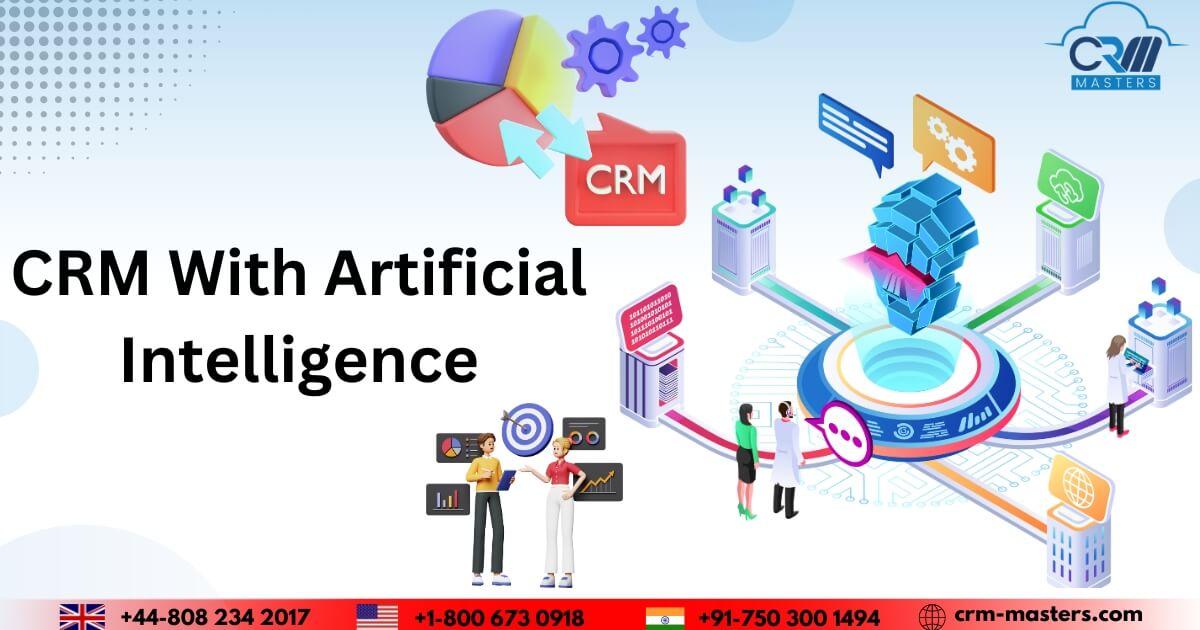
Case Studies: Success Stories of AI in CRM
Transforming Customer Relationships with AI
In the rapidly evolving landscape of customer relationship management, AI tools are proving to be game-changers. Companies leveraging artificial intelligence have experienced remarkable enhancements in their CRM processes. Let’s dive into some success stories that highlight how AI is reshaping the way businesses engage with their customers.
1. Personalized Marketing at Scale
One e-commerce giant implemented an AI-driven CRM tool that analyzed customer behavior and preferences. This tool enabled them to segment their audience more effectively and deliver tailored marketing campaigns. As a result, they recorded a 30% increase in conversion rates within just three months. By utilizing predictive analytics, they now create targeted promotions that resonate with individual customer needs.
2. Efficient Lead Scoring
A leading tech startup adopted an AI-powered CRM solution that revolutionized its lead scoring process. By harnessing machine learning algorithms, the system accurately predicted which leads were most likely to convert. This adjustment allowed their sales team to focus efforts on the highest potential customers, leading to a 25% boost in sales over six months.
3. Enhanced Customer Service
Imagine a global telecommunications provider, embracing AI chatbots to handle customer inquiries. By integrating this technology into their CRM, they saw a staggering 50% reduction in response times. Customers received instant assistance, which directly increased customer satisfaction scores by 40%. With AI handling routine queries, human agents could focus on more complex issues, enhancing the overall service experience.
4. Proactive Customer Engagement
A prominent financial institution utilized AI analytics to predict customer churn. By identifying at-risk customers early, they implemented tailored retention strategies, which led to a 20% decrease in churn rates. They proactively reached out with personalized offers and support, fostering loyalty and trust among their client base.
5. Streamlined Sales Processes
In the competitive landscape of real estate, one agency deployed AI tools to automate administrative tasks within their CRM. This automation allowed agents to spend less time on paperwork and more time engaging with clients. Consequently, they noted a 15% increase in sales productivity, as agents could close deals faster and more efficiently.
6. Data-Driven Decision Making
Lastly, a large retail chain harnessed AI to interpret vast amounts of customer data, identifying trends and insights that previously went unnoticed. This data-driven approach not only refined their product offerings but also optimized inventory management, leading to a 10% reduction in stockouts and a significant uplift in overall sales.
Conclusion
The case studies demonstrate the undeniable impact of AI tools in CRM. From personalized marketing to streamlined operations, the stories above illustrate that embracing AI is not just a trend; it is a necessity for businesses aiming to scale and boost sales in 2025 and beyond.

Choosing the Right AI Tool for Your Business Needs
When it comes to scaling your business and boosting sales, selecting the right AI tool can make all the difference. With the plethora of options available in 2025, it’s crucial to pinpoint the specific features that align with your business objectives. Here are some key considerations to guide your decision-making process:
- Integration Capabilities: Ensure the AI tool seamlessly integrates with your existing CRM and other systems. This compatibility will save you time and reduce friction in your workflows.
- Customization Options: Look for tools that offer customizable features tailored to your industry and specific business needs. The more flexible the tool, the more effectively it can serve your distinct requirements.
- Scalability: Choose AI solutions that can grow alongside your business. A tool that adapts to increasing data volumes and user demands will be a wise investment in the long run.
- User-Friendliness: Opt for tools with intuitive interfaces and straightforward functionalities. A user-friendly AI tool ensures that your team can maximize its potential without extensive training.
Additionally, consider the following aspects that can influence your choice:
- Customer Support: Quality support can be a game-changer during implementation and ongoing usage. Check if the provider offers robust customer service, tutorials, and resources.
- Analytics and Reporting: Effective AI tools should provide comprehensive analytics and insights that help you track performance and make informed decisions. Look for features that offer real-time reporting and predictive analytics.
- Cost-Effectiveness: Evaluate whether the pricing structure fits your budget. It’s essential to weigh the tool’s benefits against its costs to ensure it delivers a solid return on investment.
To help you visualize potential tools, here’s a quick comparison of some top contenders:
| AI Tool | Key Features | Pricing |
|---|---|---|
| Tool A | Integration, Customization, Analytics | $$$ |
| Tool B | User-Friendly, Customer Support, Scalability | $$ |
| Tool C | Predictive Analytics, Reporting, Integration | $$$$ |
Ultimately, the right AI tool should empower your team, enhance customer relationships, and increase overall efficiency. Take the time to assess your business’s unique needs, review the options available, and consider trial periods to get a hands-on feel for each tool. Investing in the right technology can lead to significant gains in productivity and revenue.
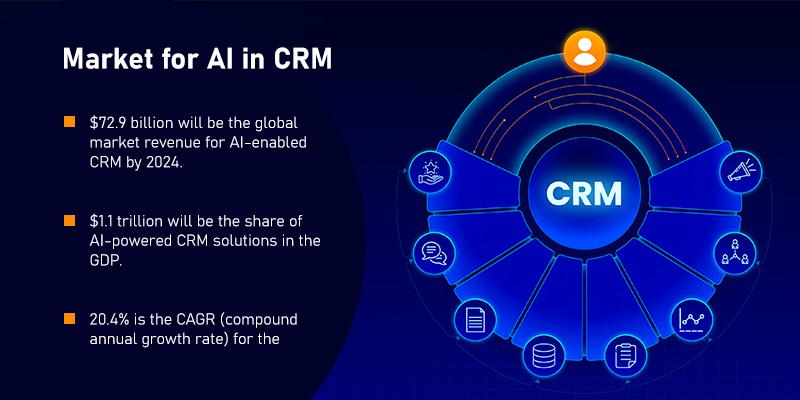
Getting Started: Implementing AI CRM Tools Effectively
Implementing AI CRM tools can transform the way businesses interact with customers, manage relationships, and ultimately drive sales. To make the most of these powerful technologies, it’s essential to integrate them effectively into your existing workflows. Here are some key strategies to consider:
- Define Your Goals: Before diving in, clarify what you want to achieve with your AI CRM tools. Are you looking to improve customer service, increase sales, or perhaps streamline operations? Clear goals will guide your implementation process.
- Choose the Right Tool: Not all AI CRM tools are created equal. Evaluate features, usability, and integration capabilities. Select a tool that aligns with your business size, industry, and specific needs.
- Train Your Team: An AI CRM tool is only as effective as the people using it. Invest time in training your team to ensure they understand both the technology and how it fits into the larger sales strategy.
- Integrate with Existing Systems: Seamless integration with your current systems is crucial. Make sure your AI CRM tool can easily connect with other software you use, such as marketing automation and customer support systems.
- Utilize Data Wisely: AI thrives on data. Regularly collect and analyze customer data to provide insights into behavior and preferences. Use these insights to personalize your customer interactions.
- Monitor and Optimize: After implementation, keep a close eye on the performance of your AI CRM tool. Gather feedback from users and adjust your strategies based on what is and isn’t working.
Once you have the fundamentals in place, consider leveraging advanced capabilities:
- Automate Repetitive Tasks: Use AI to automate routine tasks such as data entry, follow-ups, and reporting. This frees up your team to focus on building relationships.
- Enhance Customer Insights: Employ predictive analytics to forecast customer needs and behaviors. This proactive approach can significantly improve customer satisfaction and loyalty.
- Personalize Marketing Campaigns: AI allows you to tailor marketing messages based on customer data, leading to higher engagement rates and conversions.
To illustrate the effectiveness of these tools, consider the following table showcasing potential outcomes achieved by businesses that implemented AI CRM solutions:
| Outcome | Before AI CRM | After AI CRM |
|---|---|---|
| Sales Growth | 5% annually | 15% annually |
| Customer Retention | 60% | 75% |
| Lead Conversion Rate | 10% | 25% |
By taking a structured approach to implementing AI CRM tools, businesses can not only enhance their customer relationships but also achieve measurable growth in sales and efficiency. The future of customer relationship management is here, and those who adapt quickly will reap the rewards.

Training Your Team to Maximize AI Solutions
In an era where AI is transforming every aspect of business, equipping your team to leverage these advanced tools is crucial for maximizing productivity and driving sales. Training your team effectively can unlock the full potential of AI solutions, allowing for a more efficient CRM process that not only saves time but also enhances customer relationships.
Start by identifying the specific AI tools that align with your business objectives. Here are some key areas where AI can make a significant impact:
- Customer Insights: Utilize AI for predictive analytics to forecast customer behavior and preferences.
- Automated Communication: Implement chatbots or AI-driven email marketing to streamline customer interactions.
- Lead Scoring: Use machine learning algorithms to prioritize leads based on their likelihood to convert.
- Sales Forecasting: Leverage AI tools to analyze sales data for accurate forecasting, helping your team strategize better.
Next, create a comprehensive training program that includes hands-on workshops, guided tutorials, and interactive sessions. Here’s a suggested framework for your training:
| Training Component | Description |
|---|---|
| Introduction to AI in CRM | Overview of AI technology and its benefits in customer relationship management. |
| Tool-Specific Training | In-depth sessions focused on each AI tool’s features and best practices. |
| Real-World Scenarios | Hands-on exercises using AI tools in simulated environments. |
| Feedback and Q&A | Open floor for questions and discussion on challenges faced during training. |
Encourage a culture of continuous learning among your team. Make it a regular practice to share updates on the latest AI trends and tools. Implementing a knowledge-sharing platform can be beneficial, where team members can exchange tips, success stories, and resources. This not only enhances skill sets but also fosters collaboration and innovation.
Lastly, it’s essential to measure the success of your training efforts. Set clear KPIs that reflect the impact of AI utilization on your CRM processes. Some metrics to consider include:
- Increase in Sales: Measure the uplift in sales figures post-training.
- Customer Satisfaction Scores: Track improvements in customer feedback ratings.
- Efficiency Metrics: Evaluate time saved on processes due to automation.
By investing in training and fostering an environment where your team feels confident in using AI solutions, you position your business for sustainable growth and enhanced customer relationships. The right approach not only empowers your team but also leads to a more streamlined and effective sales process.

Measuring Success: Key Metrics to Track with AI CRM
When it comes to leveraging AI in your CRM strategy, understanding the right metrics to gauge success is crucial. Tracking these key performance indicators (KPIs) can help you refine your approach, drive sales growth, and enhance customer relationships. Here are some essential metrics to keep an eye on:
- Customer Acquisition Cost (CAC): This metric measures the total cost of acquiring a new customer, including marketing expenses and sales efforts. By monitoring this figure, you can evaluate the effectiveness of your AI-driven marketing campaigns and optimize your spending.
- Customer Lifetime Value (CLV): Understanding how much revenue a customer generates throughout their relationship with your business is vital. AI can help you predict this value more accurately, allowing for better resource allocation.
- Lead Conversion Rate: This metric tracks the percentage of leads that turn into paying customers. AI tools can analyze lead data and identify the most promising prospects, thereby increasing this conversion rate.
- Sales Cycle Length: The length of time it takes to close a deal can drastically impact your bottom line. By using AI to streamline processes and automate follow-ups, you can shorten this cycle and boost sales efficiency.
- Sales Forecast Accuracy: Accurately predicting future sales is essential for inventory management and resource allocation. AI-driven analytics can improve the accuracy of your forecasts, giving you a clearer picture of future revenue.
In addition to these metrics, it’s essential to assess customer satisfaction and engagement levels. This can be gauged through:
- Net Promoter Score (NPS): This score reflects customer loyalty and the likelihood of referrals. AI can help analyze customer feedback and sentiment, leading to actionable insights.
- Customer Retention Rate: Keeping existing customers is often more cost-effective than acquiring new ones. AI can help you identify at-risk customers and implement retention strategies.
- Engagement Metrics: Tracking how customers interact with your brand across various channels is vital. AI tools can analyze user behavior to deliver personalized experiences that enhance engagement.
A comprehensive view of these metrics can typically be visualized in a dashboard. Here’s a simple example of how key metrics can be presented:
| Metric | Q1 | Q2 | Q3 | Q4 |
|---|---|---|---|---|
| Customer Acquisition Cost | $200 | $180 | $160 | $150 |
| Customer Lifetime Value | $800 | $850 | $900 | $950 |
| Lead Conversion Rate | 15% | 18% | 20% | 22% |
By keeping track of these metrics, businesses can continually assess the performance of their AI CRM tools and make necessary adjustments. The goal is to create a data-driven environment that not only enhances sales but builds lasting relationships with customers. Embracing these key performance indicators will position your business for sustained success in an increasingly competitive marketplace.

Future Trends in AI and CRM You Should Watch
As we look to the future, the integration of artificial intelligence into customer relationship management (CRM) systems is set to revolutionize how businesses engage with their customers. Here are some key trends you should keep an eye on:
- AI-Powered Personalization: Tailoring customer experiences is becoming increasingly sophisticated. AI algorithms can analyze customer behavior and preferences to deliver hyper-personalized content, offers, and communication. This not only enhances customer satisfaction but also boosts conversion rates.
- Predictive Analytics: Imagine having the ability to predict customer behaviors before they happen. AI-driven predictive analytics tools are becoming essential in CRM to forecast sales trends, identify potential churn, and recommend proactive solutions, making it easier for sales teams to act effectively.
- Natural Language Processing (NLP): The advancement of NLP will enable CRM systems to better understand and respond to customer inquiries. This will facilitate more natural interactions, whether through chatbots or voice assistants, making customer service more efficient and effective.
- AI-Enabled Automation: Automation is already reshaping the landscape of CRM, but future tools will leverage AI to automate even more complex tasks. From lead scoring to follow-up reminders, AI can handle repetitive tasks, allowing sales teams to focus on building relationships.
- Enhanced Data Integration: Future AI tools will be able to seamlessly integrate with various data sources, providing a more comprehensive view of customer interactions. This will enable businesses to make informed decisions based on real-time data, ensuring they remain competitive.
- Augmented Reality and Virtual Reality: While still in the early stages, the incorporation of AR and VR into CRM can offer immersive experiences for customers. Virtual product demonstrations or augmented reality applications can enhance customer engagement, making the sales process more interactive.
Let’s take a look at how these technologies might shape the future of CRM with a brief comparison of emerging AI tools:
| AI Tool | Key Feature | Potential Impact |
|---|---|---|
| SmartEngage | Predictive Customer Insights | Improved targeting and retention |
| ChatGenius | Advanced NLP Chatbots | 24/7 customer service |
| SalesBoost | Automated Follow-Up Sequences | Greater efficiency in sales processes |
| DataSync | Real-Time Data Merging | Holistic customer profile development |
As we venture further into 2025, staying updated on these trends will be crucial for businesses aiming to leverage AI for CRM effectively. The tools that emerge will not only enhance customer satisfaction but will also provide invaluable support for sales teams looking to scale their operations. Embracing these advancements can give your business a competitive edge in an increasingly digital marketplace.
Frequently Asked Questions (FAQ)
Q&A: 9 Best AI Tools for CRM in 2025 to Scale and Boost Sales
Q1: Why should businesses consider using AI tools for CRM in 2025?
A1: Great question! As we dive deeper into 2025, the landscape of customer relationship management (CRM) is evolving rapidly. AI tools are not just an option; they’re a necessity. They help businesses automate repetitive tasks, gain actionable insights from data, and personalize customer interactions at scale. This means you can spend less time on mundane tasks and more on building meaningful relationships, ultimately boosting your sales!
Q2: What are some standout features to look for in AI CRM tools?
A2: When choosing an AI CRM tool, look for features like predictive analytics, natural language processing, and automation capabilities. Predictive analytics can help forecast sales trends and customer behavior, while NLP can enhance customer communication via chatbots and virtual assistants. Additionally, automation features streamline your sales processes, ensuring that your team can focus on closing deals instead of getting bogged down in administrative work.
Q3: Can you give me examples of how these AI tools can directly impact sales performance?
A3: Absolutely! For instance, AI tools can analyze past customer interactions to identify which leads are most likely to convert. With this insight, your sales team can prioritize their efforts on high-potential customers. Additionally, AI can help segment your audience, allowing for personalized marketing campaigns that resonate more deeply, leading to higher engagement and ultimately, more sales.
Q4: Are AI CRM tools easy to integrate with existing systems?
A4: Most modern AI CRM tools are designed with integration in mind. They usually offer APIs and can connect seamlessly with other platforms you might be using, such as email marketing tools, social media platforms, and e-commerce systems. This interoperability means you can leverage your existing data and workflows without a complete overhaul.
Q5: How do these tools improve customer relationships?
A5: AI tools enhance customer relationships by enabling personalized communication. They can track customer interactions and preferences, allowing businesses to tailor their messaging accordingly. For example, if a customer has shown interest in a specific product, AI can suggest targeted follow-ups or promotions that align with their interests. This level of personalization fosters loyalty and keeps customers coming back.
Q6: What are some of the best AI CRM tools available in 2025?
A6: Some of the best AI CRM tools to check out in 2025 include Salesforce Einstein, HubSpot CRM, Zoho CRM, and Freshworks CRM. These platforms stand out for their robust AI functionalities, user-friendly interfaces, and scalability options, making them perfect for businesses looking to grow and enhance their sales efforts.
Q7: Will the investment in AI CRM tools pay off?
A7: Definitely! While there may be upfront costs, the return on investment can be substantial. By automating tasks, improving customer targeting, and enhancing the overall customer experience, these tools can lead to increased sales, higher customer retention rates, and ultimately, greater profitability. In today’s competitive market, investing in AI CRM tools is not just smart; it’s essential.
Q8: What should businesses keep in mind when implementing these tools?
A8: When implementing AI CRM tools, it’s crucial to train your team properly. Ensure they understand how to use the tools effectively and encourage a culture of data-driven decision-making. Also, continually review the performance of the tools and adjust your strategies based on the insights gathered. The more you leverage the capabilities of these AI systems, the better results you’ll see.
Q9: How can I start using AI CRM tools for my business?
A9: Starting is easier than you think! Begin by assessing your business needs and identifying which aspects of your CRM process could benefit most from AI. Research the tools that align with those needs, take advantage of free trials, and gather feedback from your team. As you implement the tool, monitor its impact on your sales and customer interactions, and be ready to adapt as necessary. The key is to start small and scale as you see results!
This conversational Q&A not only provides potential users with clear information on why they should consider AI CRM tools but also persuades them by highlighting the benefits and practical steps to get started. Happy scaling!
Insights and Conclusions
As we wrap up our exploration of the 9 Best AI Tools for CRM in 2025, it’s clear that the future of sales is bright—and powered by artificial intelligence. These tools aren’t just about keeping up with the competition; they’re about transforming the way you interact with your customers and driving unprecedented growth for your business.
Imagine having a 24/7 assistant that not only remembers your customers’ preferences but also predicts their needs before they even know them. That’s the power of AI in CRM. By integrating these cutting-edge tools into your sales strategy, you’re not just boosting efficiency; you’re fostering deeper relationships, enhancing customer satisfaction, and ultimately, scaling your sales like never before.
So, why wait? The future is here, and it’s time to embrace these innovations. Take the leap, invest in the right AI tools, and watch your CRM capabilities soar. Your sales team—and your bottom line—will thank you for it. Let’s get started on this exciting journey toward success!



